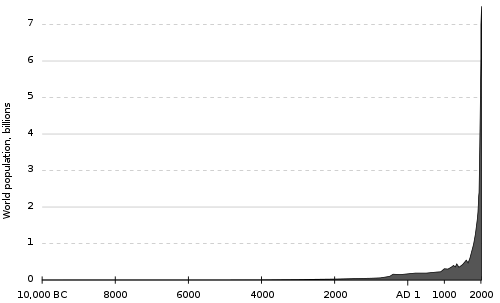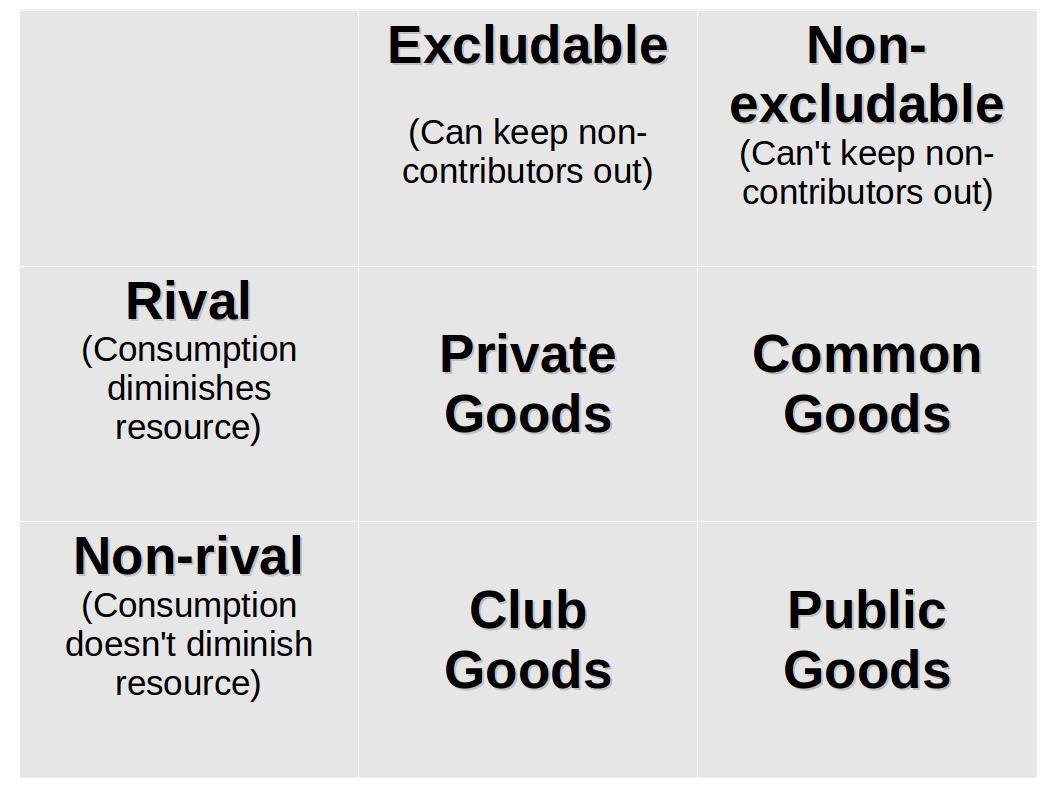Public Goods and the Tragedy of the Commons
Background: The Haywain, Hieronymous Bosch, Wikimedia Commons
Malthus and malthusianism

Thomas Malthus (Wikimedia Commons, 2005)
Population and Carrying Capacity
Malthus's Argument

Population increases exponentially
Graphic:
Wikimedia Commons, 2012
Wikimedia Commons, 2012
Agricultural production increases linearly
Bruegel the Elder, 1565, Wikimedia Commons
So, population will frequently
expand beyond food supply
Mahoney, 1847, Wikimedia Commons
Carrying Capacity
- Population supportable given a set of resources and ecological process in a particular place
- Ecological degradation sets in when carrying capacity of a place is exceeded
Garret Hardin
- Ecologist based at University of California at Santa Barbara
- Got is BS in Zoology from University of Chicago
- Concerned with problems of overpopulation
- Advocated strong government control and private property to avoid ecological collapse
Background: Bruegel the Elder, 1559, Wikimedia
The tragedy of the commons
What are commons?
(Open-access resources)
What causes the problem?
Why is it a tragedy?
Escaping the tragedy
Hardin: regulation and private property
What is another approach discussed in the video you watched?
types of Goods
Background: Wikimedia Commons, 2013
Public Goods
Goods that you benefit from without paying for
A type of positive externality
Because you benefit from them regardless, no incentive to pay
Both public and common goods can lead to "collective action problems," where goods are overexploited or underprovided
Background: Bruegel the Elder, 1563, Wikimedia Commons
Background: James Clarke Hook, 1864, Wikimedia Commons
